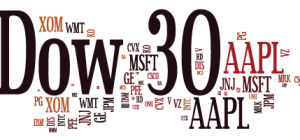Welcome to the fascinating world of finance. From traditional systems to revolutionary DeFi – the financial industry has drastically evolved. Cryptocurrencies have gained momentum, offering a decentralized, secure, and transparent alternative. DeFi, with no intermediaries and instant transactions, promises to disrupt the market further. Let’s dive into the past, present and future of finance to uncover its secrets.
Let’s face it. The traditional financial system can be downright confusing. With all the different players involved and complex regulations, it’s no wonder people are seeking alternative solutions.
The traditional financial system is a centralized approach that relies on intermediaries like banks and government institutions to facilitate transactions. While these intermediaries provide some level of security and regulation, they also come with their fair share of drawbacks. Regulation and accessibility can vary widely depending on the country or institution you’re dealing with. Transactions can be slow and costly, with fees eating into your hard-earned money. And let’s not forget the hoops you have to jump through just to open a bank account or get a loan. So it’s no wonder people are starting to look for alternatives that offer more transparency, less bureaucracy, and lower fees.
Cryptocurrencies like Bitcoin and Ethereum offer a decentralized approach to finance, with no need for intermediaries. The blockchain technology behind them provides a tamper-proof, transparent ledger of all transactions.
Not only do cryptocurrencies offer faster and cheaper transactions, but they also provide greater privacy and security. And with more and more merchants accepting them as payment, their mainstream adoption is on the rise. But it doesn’t stop there. Decentralized Finance (DeFi) is taking things to a whole new level. DeFi is a financial system built on blockchain that offers an even more decentralized approach to finance. With DeFi, there’s no need for third-party trust, as everything is handled by smart contracts.
While DeFi has the potential to revolutionize finance as we know it, it’s not without its challenges and risks. As it’s still a relatively new technology, there are concerns around security and regulation. And with the ability to create and trade any kind of financial instrument, there’s also the risk of scams and fraud.
Despite these challenges, the potential of DeFi is too great to ignore. As it continues to gain popularity and integrate with the traditional financial system, we can expect to see even more use cases and innovation. Smart contracts are also opening up new possibilities for automation and streamlining of financial processes.
The Rise of Cryptocurrencies
Cryptocurrencies have gained significant momentum in the past decade, drawing attention from investors, traders, and individuals alike. Digital currencies like Bitcoin, Ethereum, and Litecoin operate independently of banks or financial institutions, powered by blockchain technology. The concept behind it was to create a decentralized monetary system that is much more transparent, secure, and efficient as compared to traditional financial institutions. The blockchain that underpins cryptocurrencies is a decentralized ledger that records every transaction ever made. Each block contains a cryptographic hash of the previous block, creating a chain of blocks that cannot be altered. This makes it infinitely more secure than conventional ledgers, and it eliminates the need for intermediaries such as banks, lending companies, and financial advisors.
Undoubtedly, cryptocurrencies offer several advantages over traditional financial systems, such as lower transaction fees, faster settlement times, and more privacy. They’re also censorship-resistant, which means that governments can’t arbitrarily freeze a person’s assets or prevent an individual from conducting transactions with specific parties.
However, the journey of cryptocurrency has not been a smooth ride. The fluctuation in their market value is a cause of concern. The volatility of crypto assets often makes them unsuitable for conventional finance use, putting them at odds with most regulatory frameworks. Despite the challenges, global interest in cryptocurrencies is growing, with more individuals and institutions investing in the space in recent years.
Overall, the rise of cryptocurrencies has led to a fundamental shift in how we think about money and its relationship with traditional finance, with the potential to offer greater access, security, and efficiency in financial dealings.
The Revolutionary Decentralized Finance (DeFi)
In the world of finance, the concept of decentralization is gaining wide acceptance. Decentralized Finance (DeFi) is a game-changing technology that eliminates the need for third-party trust. The power of DeFi lies in the blockchain, the same technology that powered the first decentralized cryptocurrency – Bitcoin. But DeFi goes beyond just digital currencies, it encompasses a much wider range of financial applications. DeFi takes a decentralized approach to finance, which means that it operates without the need for traditional intermediaries such as banks or other financial institutions. This means that users now have complete control over their financial assets and activities. It also leads to low transaction times and fees, unlike the traditional financial system, where transactions can take considerable time and cost a lot in fees.
Due to the decentralized approach of DeFi, it offers higher security compared to the traditional financial system. This is because the risk of a single point of failure that comes with centralized intermediaries is minimized. Furthermore, DeFi empowers users to have control over their private keys. This means that users can secure their own assets, reducing the risk of a central hack or theft.
Despite the many advantages of DeFi, it still faces a few challenges and risks. One of the key challenges facing DeFi is the emerging regulatory environment. Many governments are still struggling to grasp the decentralized nature of DeFi, leading to a lack of regulation that creates a potentially volatile market. Moreover, the technology behind DeFi is still in its early stages, meaning there is bound to be some vulnerability that hackers can exploit. It is therefore essential for DeFi projects to develop strong security protocols.
DeFi is poised to revolutionize the financial system by providing more accessible, secure and cost-effective financial services. It offers a decentralized approach to finance, allowing users to have complete control over their financial assets and activities. While there are still challenges and risks facing DeFi, the potential benefits are undoubtedly enormous.
Future of Financial System
We all know that the world is moving towards digitalization, and the finance industry is no exception. One of the emerging trends is DeFi, which is becoming increasingly popular. The integration of DeFi with the traditional finance system has the potential to revolutionize the sector. Smart contracts can further streamline the process. Emerging blockchain use cases demonstrate the versatility of this technology. However, it’s not all sunshine and flowers. DeFi presents some challenges and risks, which need to be kept in mind. With the right approach, the future of the financial system looks exciting!
Conclusion
The financial world is changing at breakneck speed and cryptocurrencies and DeFi are at the forefront of this revolution. With the potential to change the way we transact, the future is exciting. Keep an eye out for new blockchain use cases and the increased integration of DeFi within the traditional financial system. Stay tuned!







